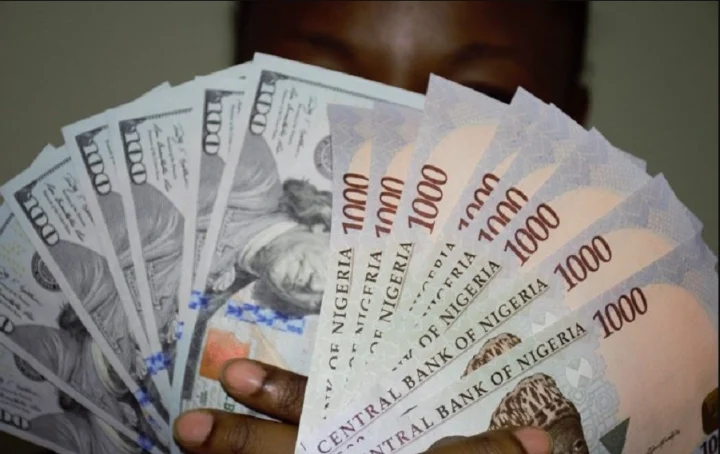The exchange rate for import duties collection by the Nigeria Customs Service (NCS) has risen to N1601.84/$ on the back of recent depreciation of the naira.
This is coming on the heels of the naira trading at a four-month low of N1,609 to the USD according to data from the FMDQ exchange on Friday, 26th July 2024.
The renewed depreciation of the naira serves as a blow to the continued monetary policy tightening by the Central Bank of Nigeria (CBN) which hopes the MPR hike will help stabilise and strengthen the value of the naira.

It is the lowest level since March 14, 2024, when it was N1,608.98 to $1, as the naira breaks through the N1,600 barrier. This decline comes just three days after the naira showed impressive gains against the dollar, marking its best performance since March marking renewed volatility in the foreign exchange market.
Sale of FX to BDCs
In a bid to shore up the supply of dollars to the foreign exchange market, the CBN in the past two weeks has been selling FX to authorised Bureau De Change (BDC) operators.
The Nigerian Central Bank allocated $148 million to 29 authorized dealers in an effort to stabilize the foreign exchange market following the naira’s recent depreciation. The transactions were conducted on Monday, July 22, and Tuesday, July 23, 2024, at exchange rates between N1,470.00/$1 and N1,510.00/$1, according to a statement released on the Apex Bank’s website on Friday.
This allocation occurred two weeks after the CBN sold $122.67 million to 46 authorized parties to reduce volatility and increase liquidity in the nation’s stable markets. Additionally, the CBN expanded its “asymmetric corridor,” raising lenders’ borrowing costs to 500 basis points above the policy rate to tighten naira liquidity and reducing the return on their deposits to 100 basis points below the benchmark.
FG’s plan to issue USD denominated bonds
Furthermore, the Ministry of Finance has announced plans to issue USD-denominated bonds to the tune of $500 million. This confirms earlier reports where the Ministry stated the target of the proposed bond issuance was targeted at diaspora funds and those with savings denominated in foreign currency in Nigeria.
However, the International Monetary Fund (IMF) previously expressed concerns about the Nigerian government’s strategy to issue domestic dollar-denominated bonds, stating that it could increase pressure on the naira and elevate the costs associated with naira securities.
It also explained that the federal government’s plan to introduce domestic foreign exchange securities, aimed at enhancing dollar liquidity in the official market, could fragment the market.
Support InfoStride News' Credible Journalism: Only credible journalism can guarantee a fair, accountable and transparent society, including democracy and government. It involves a lot of efforts and money. We need your support. Click here to Donate
